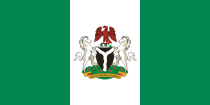Nigerians had suspected that the country was insolvent long before the gov-ernment officially announced to the world last Wednesday that it is broke.
Of course, when most of the 36 states could no longer pay salaries, let alone executing any capital project, and when even the federal government began borrowing money to carry out even the most basic duties of state, then it does not require the skill of a fortune-teller to know that all is not well.
But Information Minister, Lai Mohammed, could not have been more dramatic in telling the doubting Thomases how precarious the financial health is.
Briefing journalists after the Federal Executive Council (FEC) meeting against the backdrop of the angst over the increase in the pump price of petrol from N86 to N145 per litre, Mohammed said the decision had to do more with biting economic crunch than subsidy.
“The current problem is not really about subsidy removal. It is about (the fact) that Nigeria is broke. Pure and simple!
“It is like somebody who has been earning N100,000 a month and he is faced with a situation where his employer says henceforth, he will be earning N10,000 a month.
“He would need to make some very painful decisions and some very painful adjustments,” he said.
Even before Mohammed, Vice President, Yemi Osinbajo, had said that much in a statement he issued explaining the reason for the pump price hike.
“The real issue is not a removal of subsidy. At $40 a barrel, there isn’t much of a subsidy to remove,” Osinbajo clarified.
The insolvency of the country had become a recurring decimal in the recent past.
Shortly before the 2015 elections, alarm was raised in certain quarters that the country, which was borrowing money to pay workers’ salaries, was broke.
But the then Minister of Finance and Co-ordinating Minister of the Economy, Ngozi Okonjo-Iweala, would hear nothing of it.
That was understandable. It would have been a contradiction in terms for a country that had declared itself the largest economy in Africa after rebasing same to suddenly admit it was broke.
But even if Nigeria was not broke then, as claimed by the government, the very costly 2015 polls, depletion of the foreign reserves, drastic fall in the price of crude oil, and the vandalisation of the crude oil infrastructure in the Niger Del-ta by resurgent militant groups have all ensured that the country was brought to its knees financially.
Yes, Nigeria is in dire economic straits. And while it is true that stealing of crude oil or sabotage of the infrastructure poses grave danger because it limits, for instance, what the oil majors remit to the treasury – and therefore, must be stopped – that in itself will not rejuvenate the economy.
Imposing punishing taxes on hapless citizens, which is what the unconsciona-ble increase in the pump price of petrol and hike in electricity tariff are all about, is no solution either.
Because such economic measures only induce run-away inflation thereby en-trenching the vicious circle of poverty.
What is required in circumstances like this is creative financial engineering. The government must think outside the box, which was what Barack Obama did when he took over the Presidency of the United State in January 2009.
Unfortunately, this government has not exhibited any inclination towards that.
The uncomfortable truth is that it is not only reduced oil proceeds that has put economic activity in Nigeria in jeopardy.
While that reality cannot be discountenanced, the most potent threat to Nige-ria’s economic rebirth is the politics of sharing, which has triumphed over cake-baking and job creating economic growth policy making.
To climb out of this economic cesspit, both the federal and state governments must come to an agreement that as long as everybody heads for Abuja at the end of the month to share ever dwindling revenues, Nigeria will remain broke.
For too long, both the leaders and followers have lived in the axiomatic fool’s paradise. The economic crunch may well be a wake-up call.

- Advertisement -
- Advertisement -
Must Read
Japada: Not to Naija, are you mad? (2)
Japada: Not to Naija, are you mad?
By Taju Tijani
Remi poured the Jamaican rum in...












